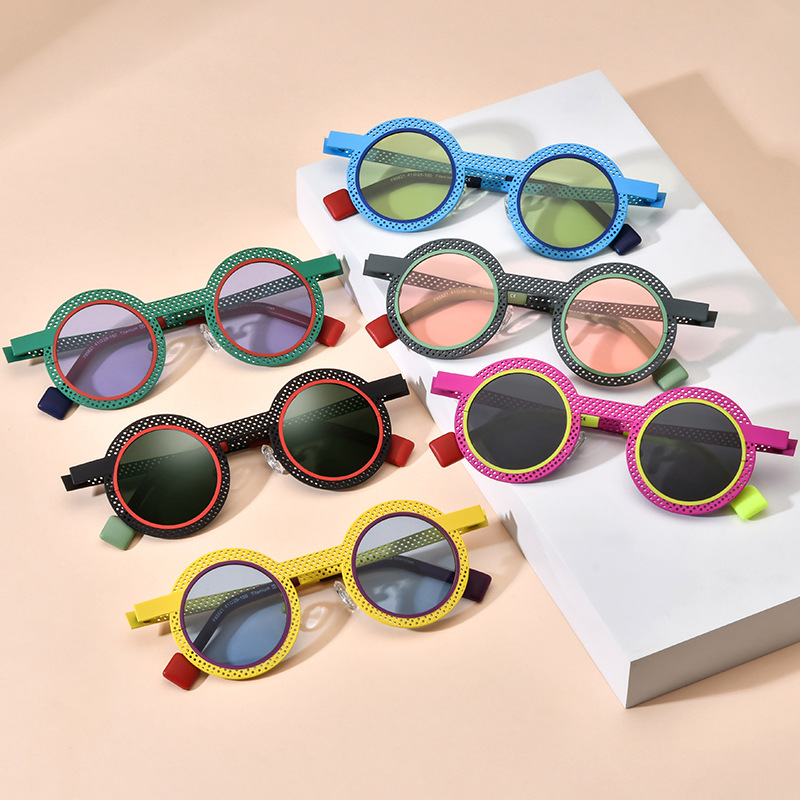When discussing the question of whether sunglasses are better polarized or unpolarized, we first need to clarify the core differences between the two and their applicability in different scenarios. Sunglasses as a common protective equipment in daily life, its main function is to protect the eyes from strong light stimulation, and reduce UV damage to the eyes. However, there are significant differences in the protective effect and visual experience between polarized sunglasses and non-polarized sunglasses.
First, the characteristics and advantages of polarized sunglasses
1. The filter glare effect is remarkable
Polarized sunglasses use professional polarized lens technology, this lens through a special filter design, can effectively reduce the horizontal surface (such as water, snow, glass, etc.) reflection caused by glare. In outdoor activities, such as driving, water sports or skiing, polarized sunglasses can significantly improve the clarity of the field of vision, reduce glare on the eyes, and make the visual experience more comfortable.
2. Improve visual contrast and detail clarity
Polarized sunglasses not only reduce glare, but also improve visual contrast and detail clarity by reducing the scattering of light. This feature allows the wearer to see distant objects more clearly in the outdoor environment, enhancing the ability to perceive the environment. For example, during driving, polarized sunglasses can block the reflected glare of the ground or the opposite vehicle, improving driving safety.
3. Highly efficient UV blocking
Polarized sunglasses usually have a UV blocking rate of more than 99%, which is much higher than ordinary non-polarized sunglasses. This means that wearing polarized sunglasses can more effectively protect the eyes from UV damage and prevent the occurrence of eye diseases.
4. Excellent material, strong durability
Polarized sunglasses are usually made of high-end materials, such as TAC polarized lenses, which not only have impact resistance, durable characteristics, but also better block UV rays. In contrast, the lens materials of non-polarized sunglasses are diverse, and the quality is uneven, and some products may be lacking in durability and UV protection.
Second, the limitations of non-polarized sunglasses
1. Glare protection effect is weak
Although non-polarized sunglasses can also block part of the strong light, they are weak in preventing glare and cannot effectively filter out strong reflected light. When doing outdoor activities, especially in an environment with strong sunlight and much reflected light, non-polarized sunglasses may make the wearer feel harsh and uncomfortable.
2. Limited visual enhancement
Non-polarized sunglasses mainly provide basic UV protection and reduce light intensity, but have a limited role in improving visual quality. When wearing non-polarized sunglasses, objects in the field of vision may appear blurred or distorted due to interference from scattered light and glare.
3. Limited application scenarios
Non-polarized sunglasses are more suitable for daily indoor and outdoor use, such as shopping, office, social and other occasions. In these scenarios, due to the relatively soft light and less glare, non-polarized sunglasses have been able to meet basic protection needs. However, in scenarios that require high visual clarity, such as outdoor activities or driving, non-polarized sunglasses may not meet the needs.
Polarized sunglasses are superior to non-polarized sunglasses in preventing glare, improving visual quality, applicable scenes, material durability and visual comfort. Therefore, in the outdoor environment with strong sunlight and much reflected light (such as beaches, snow, lakes, etc.) and scenes requiring high visual clarity such as driving, it is recommended to choose polarized sunglasses.
Of course, for the daily commute, shopping and other relatively soft light scenes, non-polarized sunglasses are also enough to meet the basic protection needs. But if the budget allows and the pursuit of better visual experience and protective effects, polarized sunglasses are undoubtedly a better choice.
No matter what type of sunglasses you choose, you should ensure that they have adequate UV protection to protect your eye health. At the same time, it is recommended to buy and try on regular opticians to ensure comfort and moderation.
Post time: Sep-14-2024
